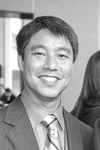
David Inoue
It was almost a year ago to the day that I was texting and calling with Kakehashi chaperones discussing whether we should proceed with the trip up to the final minutes before the first plane would take off for Japan.
A then-mysterious virus had exploded in China and over a hundred cases had been found in Japan. For the next nine days, I would wake up early every day to see that day’s morbidity report for every prefecture in Japan, paying close attention to those where our Kakehashi students were staying.
Ten days later, our group of 75 students returned, safely, even as newly reported cases were appearing here in the United States.
Upon their return, several students and chaperones were barred from returning to work or class. They faced these restrictions despite the lack of any advice from the CDC or State Department that such a quarantine was necessary or warranted.
JACL issued our first statement regarding Covid, expressing concerns about the potentially prejudiced treatment of travel to Japan, while European countries were experiencing infection numbers comparable to Japan, if not higher when considered relative to their overall population numbers. But the narrative had been set — this was an Asian disease.
It did not take long for reports of hate incidents targeting Asian Americans. At best, it was a hateful glare from someone else while waiting in line at the grocery store. Some escalated to open beratement, often with others standing by seemingly ignorant to what was happening.
At worst, there were the escalations to hate crimes, assaults and vandalism. The president wasted no time in calling it the “Chinese virus,” and White House staff was soon heard calling it “Kung Flu.” This served only to escalate and validate the anti-Asian sentiment.
There has been no abatement to the targeting of Asians. Most tragically, just a few weeks ago in San Francisco, Vichar Ratanapakdee, an 84-year-old Thai man was viciously pushed to the ground, resulting in his death.
Days later, video of a 91-year-old man being similarly shoved to the ground in Oakland’s Chinatown also emerged. Since January 2020, over 3,000 hate incidents have been reported to online reporting systems operated by several different groups who have been tracking this information.
Sadly, these recent assaults are nothing new, but part of an increasing pattern that predates President Trump’s childish name calling and the Covid pandemic itself.
The reality is that the racism and xenophobia that serve as the basis of this wave of open anti-Asian hostility has always been here. It was the same anti-Asian attitudes that served as the basis for the wartime incarceration of Japanese Americans during World War II.
The Chinese Exclusion Act of 1882, the Gentlemen’s Agreement of 1907 and the Watsonville Riots of 1930 all preceded WWII. And since then, we have seen the anti-Japanese trade wars of the 1980s, which led to the brutal killing of Vincent Chin in 1982.
Today, we see the same attitude in rhetoric and actions against other immigrant communities, especially those who come from the “s—hole countries.”
When members of our Asian community try to distance themselves from the plight of Latinx immigrants and buy into the narrative of the “illegal immigrant,” we only reinforce the same underlying hate that can be just as easily be redirected at us.
It is so hard to not laugh in someone’s face when they proclaim, “My family came here the right way,” when their grandparents immigrated near the turn of the last century. My grandfather also immigrated in the early 1900s, and because of the Chinese Exclusion Act, he was what we would now call an “illegal immigrant.” Instead, we use the softer term, “paper son.”
In the longer term, education and increasing exposure to diverse communities for all Americans can erode the development of bigoted attitudes in children and future generations, but that will take time.
The rhetoric against immigrants and nonwhites of the past several years from our nation’s leadership created this climate where it is acceptable to more openly express hate, both verbally and too often violently.
We desperately want and need for others to stand up for us when being confronted with racism on the street, and so many have stepped up to denounce what has been happening to our communities.
We need to do the same for others. This is the only way we can once again make all of these racist acts as unacceptable as they were just a few years ago.
David Inoue is executive director of the JACL. He is based in the organization’s Washington, D.C., office.



